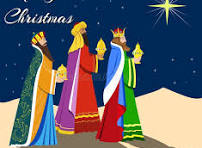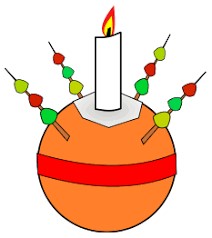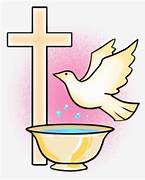Parihaka

5 November 2023 Vision: Joy Cowley. Aotearoa Psalms #16 Matthew 23: 1-12
A strange combination of factors seem to have come together today:
Guy Fawkes - and the 1605 plot to overthrow the English parliament and restore a Catholic king to the throne replacing James 1. Guido Fawkes had spent time among European Catholics and was to have been the lighter of the fuse to set the gun powder alight. We seem to insist on commemorating this event every year with fires and fireworks;
Parihaka Remembrance[1] - and what it teaches us about justice-making and peaceful resistance; and doing what is preached.
And for some the
The All Saints Day celebration of last Wednesday with the twist it takes in popular culture to the spooks, and tricks and treats of Halloween.
Is there anything that they have in common that we can reflect on? Ask your neighbour what they think.
The first two originate in social unrest and a particular way of responding to Christian teaching. Halloween also has its origin in religious practice - the Eve of All Hallows - when the veil between heaven and earth is thin; when the poor dressed in disguise visited the rich and offered to pray for the souls of their departed loved ones, for a fee of course! Originally, and Irish ritual I think taken over and adapted by the church to its own ends with its own interpretation gloss!
I want to spend a little time thinking particularly about Parihaka and the amazing example of faith and hope that it lays before us in our very troubled times.
But just let’s note, for the sake of a curious comparison, the gunpowder plot instigated by Guy Fawkes, a member of a small recusant group of English Catholics. They were backed by active Spanish Catholic supporters of the rebellion that was fomenting in England. Fawkes was in-charge of the hoard of gunpowder that was being stockpiled under the Parliament buildings and was given the task of lighting the fuse when the time came before escaping across the river. The plot failed as we know, and Guido Fawkes was executed. There are some today who would claim Fawkes is a martyr, or freedom fighter, or a political rebel. (2018. Lewis Call. Images of Guy Fawkes and the Creation of Post-modern Anarchism. Wikipedia CC BY-SA 4.0) This was an attempt to bring about a change by proactive aggression fomented by a dissident group (depending on your point of view) supported by people from other sovereign nations who thought to benefit.
And Parihaka? A growing settlement of Maori, disenchanted by the wars and land confiscations their people were experiencing. They had moved together onto land to create a peaceful non-violent community led by Te Whiti o Rogomai and Tohu Kākahi. They were the original, indigenous inhabitants of Aotearoa who objected to the division of their land into parcels for sale to the colonial settlers who were arriving. They established Parihaka. They wanted to stay on their land, farm, raise their children, engage in trade and cultural activities as they always had. They wanted equality amongst all the people of the community. They wanted to resist the unwelcome changes which were being forced upon them, and they did, beginning in 1879, by non-violent means until they were imprisoned and or killed, then dispersed around Aotearoa when their land was confiscated and sold to pay for the 'wars' which they wanted no part of .
I was thinking about this sermon during the week preceding the election. My Mother who is 99 this month, has been very caught up in the election this time, and avidly watched the TV debates, and was asking me questions. In conversation with her the issue of Maori expectations and demands came up, along with the comment that she found Rawiri Waititi's full facial moko scary. Because I was thinking about Parihaka I told her the story of Parihaka and something of the causes of Maori grievance. She was horrified. But reflected that she could see why Maori carried a residual feeling of distress, likening it to her still sense of disquiet about German people - a continuation of her experiences in WWII about which she still has nightmares. We talked about retrospective apologies, and how today's generation know little if anything about the horrors of those earlier events."It is not their fault" she reflected, and went on to observe "Apologies change nothing. But if we could rule a line under all that has caused pain and distress, and agree do things differently, then we would make a change."
The Joy Cowley psalm reminds us there is always two ways of seeing things. Sometimes the perspective of the other is difficult to understand and, we might think, simply wrong! We have to be cautious how we judge, how we react in situations where we think the other is simply wrong. In this situation, remembering the ethical guidelines that as Christians we have as touchstones, can help. Matthew reminds us of this in the reading from the Gospel today!
Matthew's Gospel presents the story of Jesus as an exodus story using Moses as the model. It is a journey away from life under the Caesars of Rome, with the heavy burdens and land confiscations that were being experienced, to the shaping of life as a new and different community of faithful people. "Do as they teach you, but not as they do." Matthew instructs his audience, in the voice of Jesus. The teaching by the Pharisees from the Torah was fine, but not their behaviour. The new community of Jesus followers could do better. That's a question we can and should put to ourselves, "Can we do better?" Can we walk the talk of peace through justice, mutual care and respect, honouring the earth and all its creatures; trust and love?"
Te Whiti o Rongamai, and his partner in leadership Tohu Kākahi, certainly believed they could. They took a non-violent stand against colonial aggression and urged all the people settled at Parihaka to do likewise. So began nine years of intermittent aggression. They believed the rhetoric of the Christian teachers, they had encountered who told stories of Jesus and his vision of a community of equals, they had faith and hope in the stories of peace with justice. The Pākeha leadership had a different agenda. Matthew's warning is apposite "Do what they teach you, but do not do as they do, for they do not practice what they teach."
My Mother was concerned that if we hold on to age old grudges, whether that was, for her, against the German nation, or among Maori and Pākeha, or in the unfathomable complexity of Israel and Gaza, or the Ukraine, things would never change. To hold on, without change, would go on perpetuating aggression and retaliation with the all the death and pain that accompanies such an unending aggressive cycle.
Her dream of simply drawing a line and starting from now with peace-making intentions, with respect for those who are different and aspire to different goals, is of course to dream the impossible.
My Mother rang me the day following our conversation and said she had been thinking about our conversation. "How did it end?" she asked, "I want to know how it ended!" I had to tell her that in all reality it hadn't ended. The generational damage and social deprivation that was the outcome of those years of non-violent resistance and the shattering of the dream of Parihaka, continues still. It can be seen all around us in the poverty, the struggle for justice, the lack of respect for and dislocation of Maori, our prison statistics and the homelessness. The pain has flowed down to our times. It isn't lovely.
But, if for a moment we imagine we could draw that line and start with the intention to build a better world, what would it mean for us to 'walk the talk'; 'to do what we teach'; to live as though there was enough for all and we didn't need to accumulate wealth and protect ourselves against the other? What changes would we each have to make?
At the very least it will mean calling out acts of aggression - physical, emotional, and systemic violence against those who are being disadvantaged; pointing out occasions when we hear 'blame the victim' rhetoric; and demanding change when education, a dry home, the means of economic independence, and medical support is moved out of reach. To do this we will have to overcome our embarrassment and fear of being stigmatised by our peers as being with 'the others'. It requires some bravery on our part to adopt a 'walk the talk of our faith' commitment.
But then the Way of Jesus was never going to be easy; and fortunately we are not expected to bring about change alone. It is together that we are the Body of Christ, and together we live the impossible dream.
[1] [1] www.nzgeo.com/stories/parihaka. Accessed 13 October 2023




